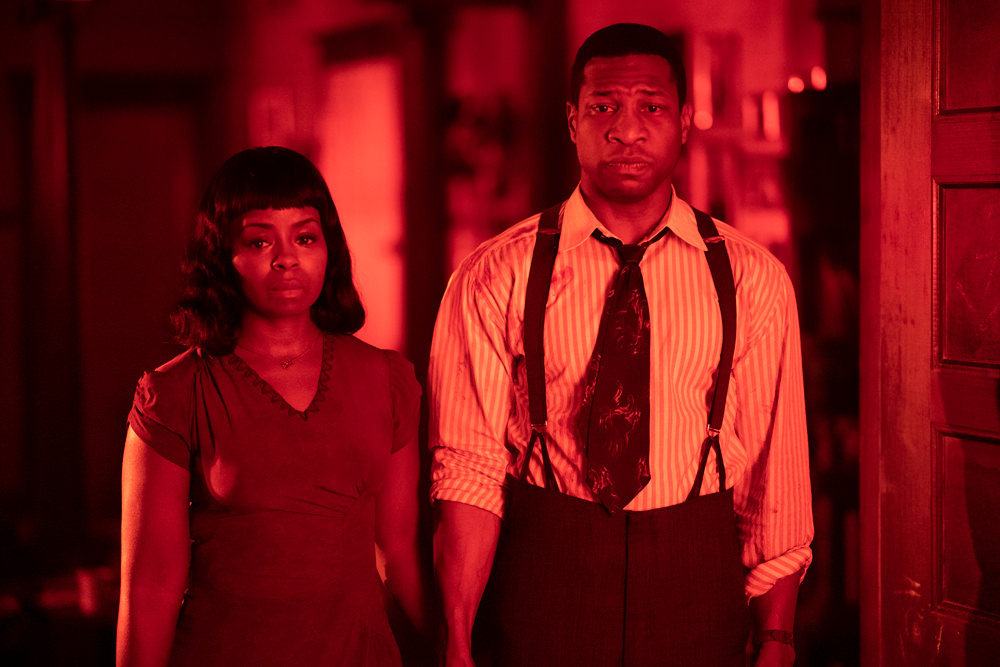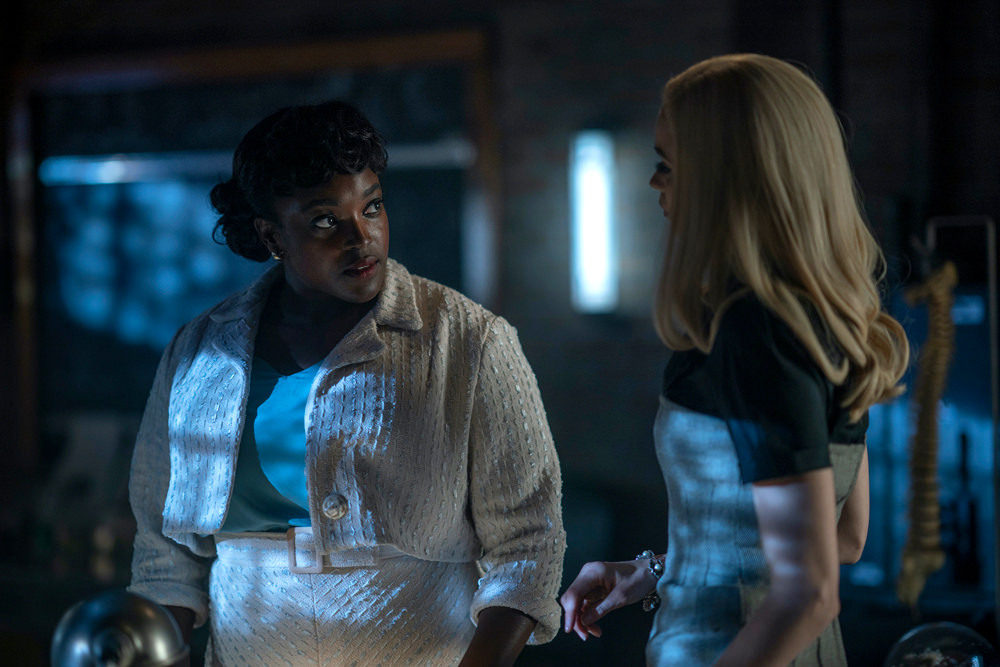
Lovecraft Country closes it’s first(?) season with a bang, several whimpers, and an exploding neck, serving up its usual mix of family drama, African-American history, and supernatural shenanigans to their full effect. If Lovecraft Country only winds up getting one season in the end, it will be remembered as a series that made bold narrative swings, explored deep cuts of history and culture, and renewed some of the oldest, most cliched adventure tropes of the last century with new energy and new perspectives, by removing the default white heroes completely and making every superhero, cyborg, time-traveler, shape-shifter, plucky girl heroine and space adventurer a Black person. The finale of the season (or the series) was emotionally satisfying and tied off nearly every narrative thread neatly, offering closure for many of the characters and setting up some form of new status quo for most of them. But if Lovecraft Country only winds up getting one season in the end, we’re not sure yet if the show ended bravely or in the most depressing manner possible.
George Freeman, dead. Tic Freeman, dead. Ruby Baptiste, if not dead, then as good as. Dee Freeman, mutilated, murderous, possibly estranged from her family and emotionally damaged. Montrose and Hippolyta lost or got cut off from each of their families. Leti got a house, invulnerability, and a baby for her troubles, so … yay? To be fair, if you dive as deep as this show did into Black trauma and the evil underlying anti-Black racism, any truly happy ending might have felt like a cheat or worse, like a naive response to the true horrors the characters faced. Still, even though Christina Braithwhite got the kind of disgusting (but extremely satisfying) ending she deserved and Titus’ ancestors helped Leti take magic away from white people forever, the rather abrupt ending of the season and the lack of any closure made it hard for us to feel a sense of victory. What does it mean to take magic permanently away from all white people? We may never find out.

Yes, things did come satisfyingly full circle in the manner the title of the episode indicated, but Lovecraft Country, as good as it was at times, had a recurring problem with the way it sometimes seemed to forget the needs of its audience. It’s usually a good thing when the creators of a series refuse to hold the audience’s hand or spoon-feed them every bit of information and exposition possible, but there were a bit too many narrative leaps, gaps in the story, and poorly explained turns. Did you know that Christina restored Leti’s invulnerability, which is why she survived that fall from the tower? The script gave you no reason to know that, but showrunner and writer Misha Green explained it after the fact on social media and in interviews. She also admitted a week or two ago that Montrose’s murder of a two-spirit individual was handled badly and left unexplained. As good as Lovecraft Country was at times, these gaps and leaps weighed the show down and kept it from being as good as it could have been.

In the end, the show still has a problematic way of depicting and defining queerness. We got the slightest hint that Ruby and Christina have some sort of true attraction to each other but we’ll never really know, because we were only allowed to see them have sex when Christina was male and Ruby was white. For the most important coupling they’ll ever have – the one upon which the entire climax (you’ll pardon the term) of the story hinges – we’ll just have to picture it, we suppose. To be fair, the show wasn’t shy about depicting male-on-male sex, even if it was impractical, violent, and fell back on the awful “spit in the hand” cliche about gay male sex. Ruby’s entire off-screen ending felt like a cheat, given how much time was spent on her character and how much Wunmi Mosaku dominated the show with her charisma. We realize it was written that way so that Christina’s deception wouldn’t be obvious to the audience, but the entire season built up to that scene of Leti and Ruby hugging and realizing their sisterly bond after multiple scenes of Ruby pushing her away angrily. It felt like a huge letdown to find out in passing that the scene was a falsehood and that Ruby had been killed. Or had she? Add that to the list of things we don’t know and may never know.
To be fair, if Lovecraft Country wanted to come back for a second season, expanding the story well past the confines of the book that inspired the first season, it wouldn’t be that hard to resurrect Ruby and even Tic for another go-around. Before the finale, we had no opinion on whether the show should continue after this season, but given how definitive their victory was, we don’t really see much story left in these characters. Given that, we would have preferred a happier ending for some of them. The similarly themed Watchmen ended tragically but triumphantly, with the fate of its main character left tantalizingly unresolved – and we hope never to see any of it again. It was good enough to feel complete by the end. Lovecraft Country remains one of the very best things on television in 2020 and the finale was emotional, stirring, horrifying and thrilling in exactly the way we wanted, but it didn’t entirely stick the landing on its own story and it didn’t leave enough hanging for us to want more.
Yea or Nay: Givenchy “Tryp-Toe” Shoe Next Post:
Lanvin Spring 2021 Collection
Please review our Community Guidelines before posting a comment. Thank you!



